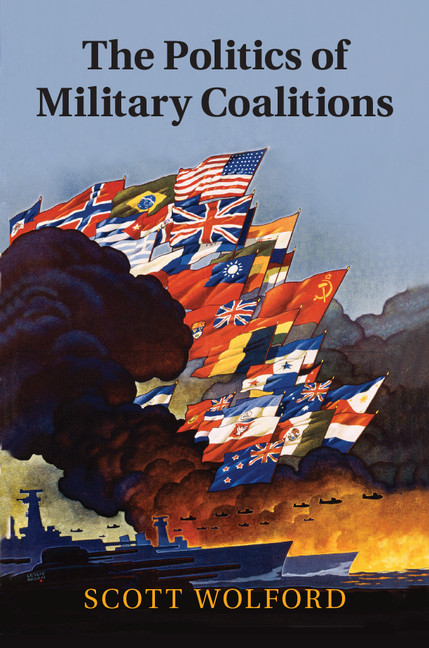The Politics of Military Coalitions by Scott Wolford
Available now from Cambridge University Press. |
Military coalitions are ubiquitous. The United States builds them regularly, yet they are associated with the largest, most destructive, and consequential wars in history. When do states build them, and what partners do they choose? Are coalitions a recipe for war, or can they facilitate peace? Finally, when do coalitions affect the expansion of conflict beyond its original participants? The Politics of Military Coalitions introduces newly collected data designed to answer these very questions, showing that coalitions – expensive to build but attractive from a military standpoint – are very often more (if sometimes less) than the sum of their parts, at times encouraging war while discouraging it at others, at times touching off wider wars while at others keeping their targets isolated. The combination of new data, new formal theories, and new quantitative analysis will be of interest to scholars, students, and policymakers alike.
Endorsements
|
Military coalitions data
The list of coalitions and their members used in the book's empirical analyses are available in both Stata and CSV format. When using the data, please cite the book as the publication of record,
- Wolford, Scott. 2015. The Politics of Military Coalitions New York: Cambridge University Press.
Related papers
Papers appearing in print as nascent versions of eventual chapters in the book:
- Scott Wolford. 2014. "Showing Restraint, Signaling Resolve: Coalitions, Cooperation, and Crisis Bargaining." American Journal of Political Science 58.1:144-156. (Proofs)
- Scott Wolford. 2014. "Power, Preferences, and Balancing: The Durability of Coalitions and the Expansion of Conflict." International Studies Quarterly 58.1:146-157. (Erratum/Appendix)
- Scott Wolford. Forthcoming. "The Problem of Shared Victory: War-Winning Coalitions and Postwar Peace." Journal of Politics
- Scott Wolford and Emily Hencken Ritter. 2016. "National Leaders, Political Security, and the Formation of Military Coalitions." International Studies Quarterly 60.3:540-551.
- Daina Chiba and Jesse C. Johnson. 2015. "Interstate Coalitions and Crisis Duration." Presented at the Annual Meeting of the American Political Science Association, San Francisco CA, 3 September.
